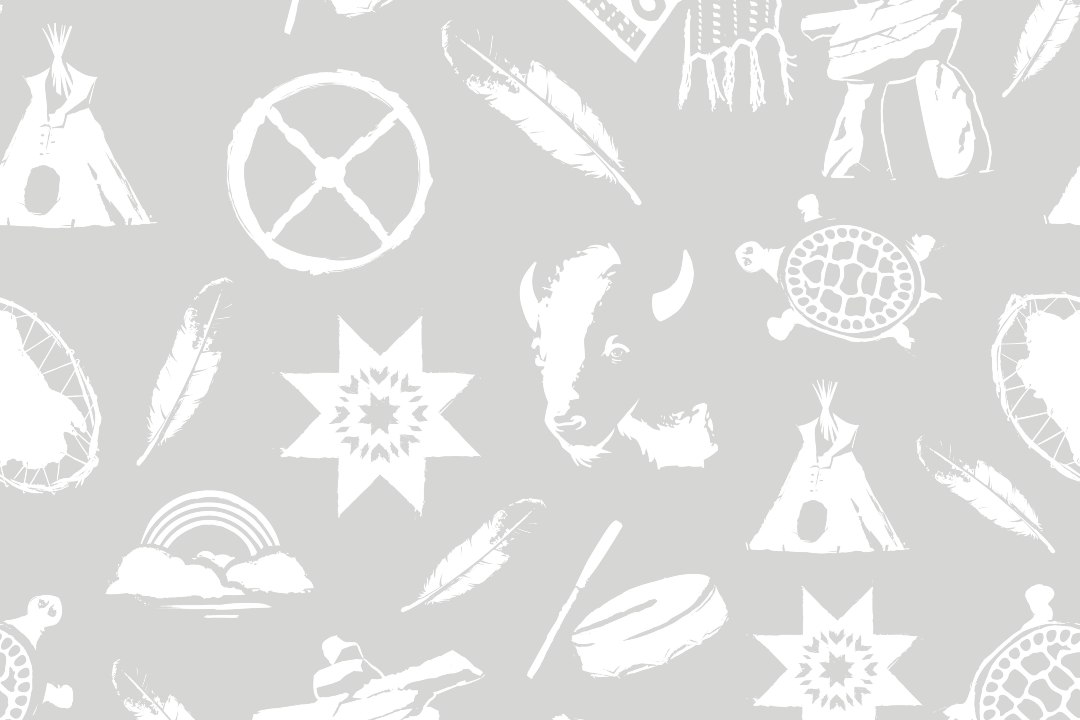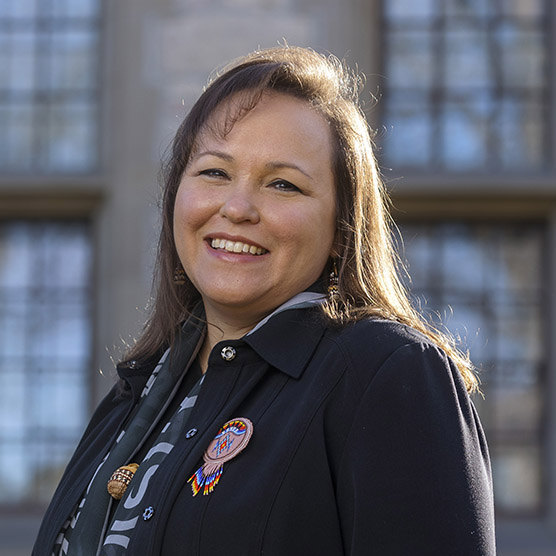
Call to uplift Indigenous voices at USask
As a leader in Indigenization, the University of Saskatchewan (USask) aspires to achieve uplifting Indigenization and to advance transformative decolonization leading to reconciliation as an institution and university community. Indigenization is a huge task, one that cannot be achieved alone.
Dr. Angela Jaime (PhD) has been with the university for four years, having first joined as vice-dean Indigenous for the College of Arts and Science and is also a professor of Indigenous Studies. Jaime now serves as vice-provost Indigenous engagement, a role in which she, along with her team, is responsible for initiatives like deybwewin | tapwewin | taapwaywin: Indigenous Truth Policy and ohpahotȃn | oohpaahotaan: Indigenous Strategy, guiding conversations across campus about what it means to recognize Indigenous membership/citizenship, decolonize the university, and uplift the voices of Indigenous students, staff and faculty.
Examples of Indigenization are happening throughout the year at USask. The university-wide committee mistatimõk planning collaboratively to support and educate the campus community, anti-racism/anti-oppression training delivered to senior leaders and units for the past two years, and ohpahotân | oohpaahotaan spring and fall symposiums attended at full capacity for the last four events. These are just a few of the efforts happening to further support the USask commitment to reconciliation.

“Indigenization has a lot of levels,” Jaime explained. “Ultimately the goal is that we [Indigenous people] don’t have to explain ourselves or fight for our voice or a vote at the table, because it would already be built into the institution. While we’ve made progress as a university, we have a long way to go.”
Education is a critical component to this work.
As an academic specializing in Indigenous Studies, it wouldn’t be a stretch to assume that Jaime might consider herself an expert on Indigenous issues or culture, but that’s not the case.
“I’ve been trained academically in Indigenous Studies and education globally, specifically the United States,” said Jaime, “but when I came to Saskatchewan, I spent, and continue to devote time, to learning as much as I can about Métis, Inuit, and First Nations people and their distinct and unique cultures and history.
“As a learner, I turn to what I know, and that’s doing the research and continuing my education,” said Jaime. “It’s also important to take time to sit and care for your relationships and learn from each other.”
Jaime believes it’s incumbent upon everyone at USask to take the time to learn and make connections. Everyone must take ownership of this work personally and professionally, Jaime explained, because the responsibility for reconciliation lies with everyone.
“Doing the work is all about education and exposure,” said Jaime. “It’s about holding the line when others want to shy away from implementing ohpahotân | oohpaahotann, the Indigenous Strategy for USask. It’s time to make space for Indigenous voices, not just as advisors but as decision makers.”
Accepting the gift of ohpahotân | oohpaahotann means the university has a responsibility to do our part towards Indigenization – “to take an end of our strands, hold on tight, and provide the needed pressure and tension as we weave a tight sweetgrass braid.
“We all must continue to create and make space for Indigenous people to take up that space,” said Jaime.
While Indigenous people have a role to play in Indigenization, Jaime said it isn’t their role to correct the past.
“It’s not the job of Indigenous people,” emphasizes Jaime. “Their role is to represent and support their Nations and Collectives and make sure they are getting everything they deserve; they are the Rights Holders. Everyone else needs to think about what truth means and how they’re facing their own truth to support reconciliation.”
Take the first step by learning about Indigenous history and current events this month on USask’s Spotlight page.
Together, we will work towards Truth and Reconciliation. We invite you to join by supporting Indigenous achievement at USask.

